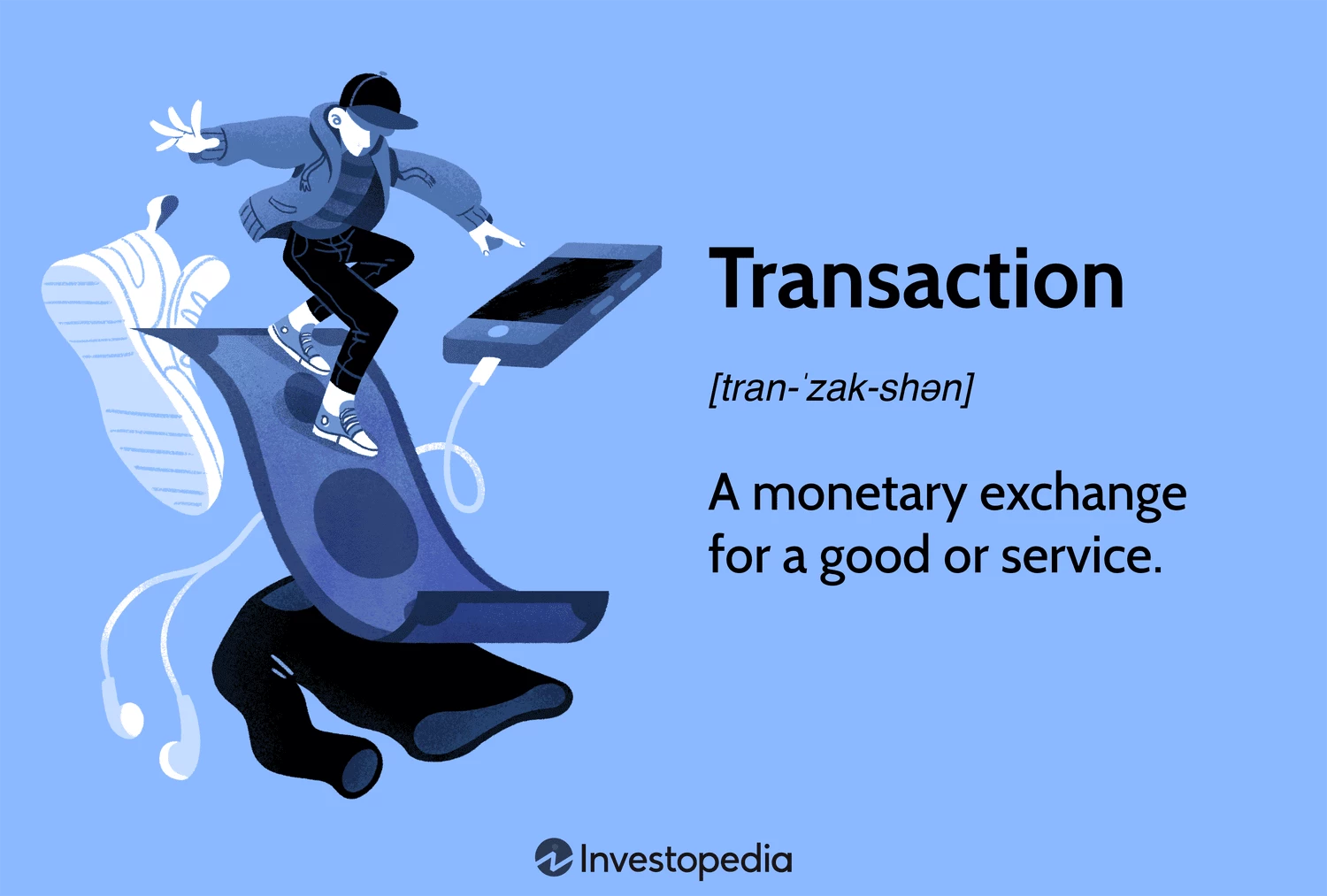Understanding Transactions: A Comprehensive Guide
A transaction is a fundamental aspect of commerce, representing the agreement between a buyer and a seller to exchange goods, services, or financial assets for money. Beyond the basic concept, transactions play a crucial role in corporate accounting practices, where the methods of recording transactions vary depending on the accounting principles employed by the business.
**Key Takeaways**
- A transaction denotes the exchange of money for a product or service.
- Corporate accounting introduces complexities in transaction recording.
- Accrual accounting reflects transactions immediately upon completion, irrespective of payment timelines.
- Cash accounting, favored by smaller enterprises, records transactions upon actual money receipt or payment.
- Third-party transactions can add layers of complication to the recording process.
Delving Deeper into Transactions
While a sales transaction between a buyer and a seller appears straightforward on the surface – an exchange of money for goods or services – the accounting nuances can make transactions more intricate. Businesses often engage in deals that extend beyond the immediate term, leading to complexities in recognizing revenues and expenses. Third-party involvements can further muddle the transaction landscape.
Choosing between accrual accounting and cash accounting significantly impacts a company’s financial and tax reporting, dictating when transactions are officially documented based on revenue realization and expense incurrence.
- The accrual method demands prompt recording of transactions upon occurrence, disregarding payment timelines.
- Cash accounting registers transactions solely upon actual cash inflow or outflow.
Accrual accounting is typically favored by businesses with substantial financial activities, while cash accounting is the preferred choice for small enterprises.
Unpacking Transactions under Accrual Accounting
Under accrual accounting, income is recorded upon service completion or product delivery. Businesses with significant sales volumes over a specified period typically opt for accrual accounting, ensuring meticulous tracking of sales and purchases.
Illustrative Scenarios
For instance, a company selling on credit recognizes revenue upon the transaction, regardless of the payment timeline.
Similarly, expenses are recorded when goods or services are acquired, showcasing a real-time reflection of financial activities on the books.
If a business adopts the accrual accounting method, transactions, including credit sales, are promptly documented.
Diving into Transactions with Cash Accounting
Smaller businesses, especially sole proprietorships and partnerships, typically leverage cash accounting, where income recognition aligns with cash receipt, be it through cash, checks, or card payments.
Real-Life Scenarios
For instance, a business only accounts for revenue upon the actual cash receipt, postponing recognition until the payment is cleared.
Likewise, expenses are logged exclusively upon payment, ensuring a straightforward tracking of financial transactions.
The cash accounting method, suitable for businesses with lower revenue thresholds, simplifies transaction recording without the need for complex accruals. However, it may result in volatile profit statements due to immediate cash impact.
Demystifying ACH Transactions
An ACH transaction involves electronic fund transfers between banks through the Automated Clearing House, encompassing activities such as direct deposits and online bill payments.
Cancelling a Pending Transaction: Your Comprehensive Guide
Understanding pending transactions, which are transactions initiated but not yet finalized, is vital. These include payments, purchases, and pre-authorized debits awaiting processing or approval. If needed, reversing a pending transaction requires reaching out to the merchant or financial institution promptly.
Analyzing Accounting Transactions
While transactions form the core of business interactions, their recording methodologies vary. The accrual approach emphasizes recording transactions upon execution, unlike the cash method that links recording to cash movements.
In Conclusion: The Importance of Transactions
Transactions serve as the linchpin of financial exchanges, symbolizing mutual agreements where goods and services are bartered for monetary compensation. In the nuanced world of accounting, the method chosen, whether accrual or cash, determines the timeline for transaction recognition, shaping a business’s financial standing and tax obligations.
